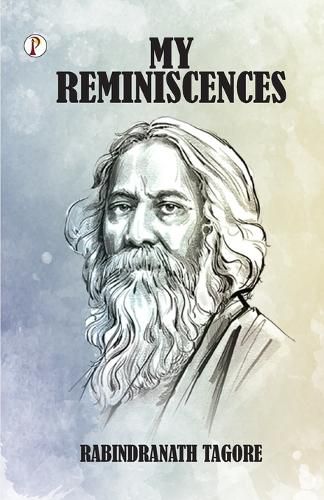Readings Newsletter
Become a Readings Member to make your shopping experience even easier.
Sign in or sign up for free!
You’re not far away from qualifying for FREE standard shipping within Australia
You’ve qualified for FREE standard shipping within Australia
The cart is loading…






In the autobiographical sketches painted in this book by Rabindranatha Tagore, a great thinker and poet from India, gives us windows into his childhood, his youth, and his blossoming as a writer and as a lyricist. He stresses that this is not an autobiography, but more like a palimpsest of memories: glimmers and shadows that illustrate his artistic development, not a strict record of his life. Rabindranath Tagore (7 May 1861 - 7 August 1941) was a Bengali short-story writer, poet, musician, composer, playwright, essayist and painter from India who was instrumental in transforming Indian art, especially Bengali literature and music, by introducing contextual modernism and new verses and prose. Both his prose and poetry were on varied topics and were considered to be magical and spiritual as visible in some of his noted works such as Gitanjali, Gora and Ghare-Baire. Referred to as the 'Bard of Bengal', his compositions were chosen as national anthems by India and Bangladesh while the Sri Lankan national anthem was inspired by his work. He became the first non-European to receive the Nobel Prize for Literature in 1913.
$9.00 standard shipping within Australia
FREE standard shipping within Australia for orders over $100.00
Express & International shipping calculated at checkout
In the autobiographical sketches painted in this book by Rabindranatha Tagore, a great thinker and poet from India, gives us windows into his childhood, his youth, and his blossoming as a writer and as a lyricist. He stresses that this is not an autobiography, but more like a palimpsest of memories: glimmers and shadows that illustrate his artistic development, not a strict record of his life. Rabindranath Tagore (7 May 1861 - 7 August 1941) was a Bengali short-story writer, poet, musician, composer, playwright, essayist and painter from India who was instrumental in transforming Indian art, especially Bengali literature and music, by introducing contextual modernism and new verses and prose. Both his prose and poetry were on varied topics and were considered to be magical and spiritual as visible in some of his noted works such as Gitanjali, Gora and Ghare-Baire. Referred to as the 'Bard of Bengal', his compositions were chosen as national anthems by India and Bangladesh while the Sri Lankan national anthem was inspired by his work. He became the first non-European to receive the Nobel Prize for Literature in 1913.